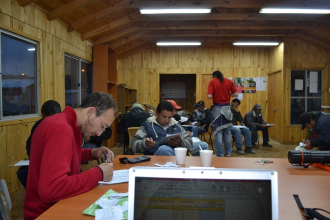Managing and Defending the Commons: Experimental Evidence from TURFs in Chile
This work presents the results of framed field experiments designed to study the joint problem of managing harvests from a common pool resource and protecting the resource from poaching. The experiments were conducted both in the field with TURF users and in the lab with university students. Our study has two objectives. First, we designed our experiments to study the effects of poaching on the ability of common pool resource users to coordinate their harvests when encroachment by outsiders is unrestricted and when the government provides weak enforcement.
